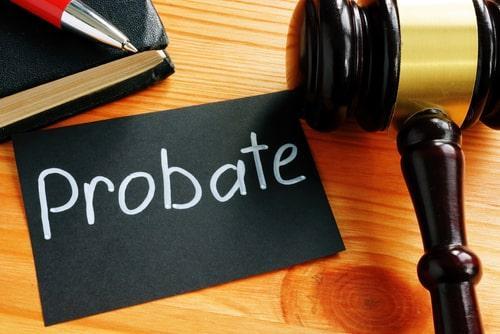Recent Blog Posts
Bristol Business Estate Planning Attorney: Business Estate Planning

Business estate planning is essential for families in Bristol and other adjacent areas of Kendall County, Illinois, especially for owners of small to medium-sized businesses and their families. In addition, families with high incomes and overall assets generally require extensive business estate planning.
A robust legal basis for protection against death and disability will be established by prudent asset management and detailed estate planning. Making a robust asset management strategy is even more critical since it will protect a person's and their family's business and personal assets from potential risks.
This article will discuss the essential business estate planning and asset management techniques for intelligent business owners.
Estate Planning Tips for Businessmen in Bristol
When advising business owners and their families about proactive business estate planning, doing a risk assessment is the first step. An assessment of a person's assets and the legal risks that might impact their financial security and retirement plans is known as a risk assessment.
What is an Uncontested Divorce in Oswego, Illinois?
Oswego Uncontested Divorce Lawyer: What is an Uncontested Divorce?
What is an Uncontested Divorce?
If both spouses agree on all the significant matters concerning the divorce, they may obtain an uncontested divorce. Important issues in divorce include the division of assets, child custody and support, and spousal support.
Benefits of an Uncontested Divorce: Saving Time, Money, and Emotions
An uncontested divorce is the best-case scenario for two spouses seeking a divorce for several reasons. Not only does an uncontested divorce save the parties money in attorney and court fees, but it also minimizes the emotional stress on the entire family that results from obtaining a divorce because the process is taken care of as quickly and amicably as possible.
Uncontested divorces take much less time than traditional divorces because a conventional divorce is a long, drawn-out process. The longer this process takes, the more emotional burden is put on the former spouses and their families. In addition, a traditional divorce requires both opposing sides to go through a full court case. This includes service of process (hiring a professional to service the opposing party with a court summons at their home), production of documents by the parties, and both parties being required to meet strict deadlines. As a result, attorney fees, court costs, and outside fees for obtaining the necessary documents quickly add up and lead to a heavy financial burden. It is common for a traditional middle-class couple's divorce case to cost the parties tens of thousands of dollars.
Shorewood Quit Claim Deed Lawyer: Amending Title By Adding or Removing a Spouse

Whether a couple purchases a home together and later gets divorced or individual purchases a house and later gets married, both instances are sufficient to warrant a change in title to the property. When changing the name on the title, a Quit Claim Deed can be drafted to add or remove individuals from the title. A Quit Claim Deed differs from a warranty deed because no warranty is attached to a quit claim deed. This means the grantor transfers whatever interest they have in the property to the grantee, with no special warranties protecting their interest. Therefore, when adding a spouse to the title, it is imperative to find an attorney that understands the different types of ownership classifications to ensure ease of transition upon the death of one of the spouses. At Peace of Mind Asset Protection, LLC (a division of Gateville Law Firm), our staff and attorneys are thoroughly trained in both real estate and estate planning, so our firm understands the interplay between the two areas of law and can effectively transfer title about the specific factual circumstances of the individuals.
Yorkville Spousal Support: Spousal Support Frequently Asked Questions
How is Spousal Support Calculated in Illinois
The divorce process can often be an emotionally draining, stressful, and trying time for all parties involved. One of the biggest concerns those going through a divorce have is how the divorce will impact their finances. This consists in paying spousal support (known as alimony or maintenance) to the ex-spouse.
What is Spousal Support?
Suppose a judge has determined that the circumstances of a divorce are appropriate to include spousal support. In that case, the judge will then order one ex-spouse to pay the other monthly payments, called spousal support, once the marriage has legally ended. In some instances, if there is a prenuptial or postnuptial agreement, the amount is determined through this agreement rather than by a judge.
What is the Purpose Behind Spousal Support?
A judge will typically order spousal support to be paid from one ex-spouse to the other to help the ex-spouse support themselves and live on their own following the divorce. Generally, people who are found to be able to work on their own are expected to find employment and support themselves. However, it is essential to note a judge is not required to order spousal support.
Aurora Real Estate Investor Lawyers: Business Structure and Asset Protection Strategies

Gateville Law Firm provides advanced business structure planning strategies for real estate investors, landlords, and commercial property owners to maximize asset protection. One of the most popular business entities for such individuals is a limited liability company or an "LLC." The LLC provides flexibility and limited liability protection for business owners and investors. It limits business creditors' reach to the LLC's assets rather than its owners' personal assets.
Plaintiff's lawyers understand the benefits of an LLC's limited liability protection. They often use the Illinois Consumer Fraud and Deceptive Business Practices Act to go after a business owner's assets in case of a judgment. This makes it crucial for business owners and investors to set up an LLC and incorporate their business or real estate holdings. Combining their business holdings and real estate investments makes it more difficult for Plaintiff's lawyers to collect on their judgments.
Losing a Loved One: What To Do After a Death

Losing a loved one is a complex and emotional experience. The death of a loved one is made more difficult when their estate and financial assets are in disarray. If the deceased person had a will or other estate planning documents, their estate would likely go through the probate court. Unfortunately, most people are unaware that a will must be probated and go through a "probate court."
Probate is the legal process to identify a person that will supervise the administration of one's will through the court process called "probate." The probate court will determine and gather the decedent's assets, pay their debts and taxes, and distribute their property according to their will or Illinois state law.
Intestate Succession in Illinois
Intestate succession distributes a deceased person's assets when they do not have a will. When a person dies without a will, the decedent dies "intestate." In Illinois, an intestate person's assets are governed by the Illinois Probate Act. Therefore, under Illinois law, a deceased person's assets are distributed consistently with the Illinois Probate Act. Intestate law will identify the surviving spouse, children, parents, or other relatives to determine the proper heir of a deceased person's estate. Illinois law assumes that a dead person would distribute their estate to their surviving spouse (50 percent) and any surviving children (50 percent). Therefore, the deceased person's children shall have 50 percent of the assets in equal shares. Without a surviving spouse, the entire estate will be distributed to their children per stirpes (in equal shares). If any children have deceased, the deceased person's children will inherit their parent's share of their estate. If no children exist, the surviving spouse will inherit the entire estate.
Divorce Basics in Kendall County, Illinois: Marital Settlement Agreement
Yorkville Divorce Lawyer: Basics About the Divorce Process
Contested vs. Uncontested Divorce
In Illinois, an uncontested divorce is also known as a "dissolution of marriage." When both spouses agree to the significant vital terms of a divorce, and neither spouse challenges the divorce, the divorce is uncontested. The key terms in a divorce that must be agreed upon include, among others, the issues of property, debts, children, and spousal support (also known as alimony). Specifically, this includes topics like the division of marital property and marital debts, child custody and parenting schedule, child support and medical insurance coverage for any children, and custody of pets shared during the marriage.
Do I Need to Attend Court Hearings for My Uncontested Divorce?
The spouse petitioning the court for the divorce (by filing the paperwork with the county) must make an appearance at the final hearing with the court. However, only that spouse is required to attend, so long as the other spouse has agreed to and signed all relevant documents (including the Marital Settlement Agreement, discussed in depth below). At the final hearing, the petitioning spouse must testify to the terms of the Marital Settlement Agreement and the identity of both parties. Further, the judge or the other spouse's attorney, if they are assisted by one, can ask questions that ensure the terms of the Marital Settlement Agreement are clearly understood before they are officially finalized by a court order.
Montgomery Real Estate LLC Lawyer: Assisting Real Estate Investors & Commercial Property

This article will discuss business entities for real estate investors, landlords, and commercial property owners. The most popular business entity is a limited liability company, an "LLC." The LLC is a method to insulate a business owner's assets from business creditor concerns. The LLC provides limited liability protection for its owners by limiting a business creditor's reach to business assets versus the personal business assets of its owners. Business owners are concerned about limited liability protection and protecting their assets from a creditor's lawsuit.
As a general rule, the LLC provides liability protection, which limits a creditor's remedies to the business assets of the LLC. Plaintiff's lawyers understand the benefits of an LLC's limited liability protection and make their living finding a strategy to go after a business's owner's assets.
There are several strategies that creditor rights lawyers seek to recover losses for their clients. The Illinois Consumer Fraud and Deceptive Business Practice Act ("Act"), 815 ILCS 505/1, et seq., is legislation, which is intended to protect individuals, consumers, and businessmen against fraud, unfair methods of competition, and unfair or deceptive practices in the conduct of a trade or business. This legislation is used broadly by creditor's attorneys to go after a business owner's assets in case of a judgment. The threat of litigation will often result in a settlement in a creditor's favor. In addition, this legislation grants punitive damages, reasonable attorney's fees, and court costs as damages that a Plaintiff can seek.
How to Calculate Child Support in Yorkville and Kendall County?
Kendall County Child Support 101
This article summarizes Illinois Child Support. Child support guidelines determine child support in Yorkville and Kendall County. See 750 ILCS 5/505. The income shares model is the child support enacted legislation, effective on January 1, 2019. The child support model calculates total household net income and computes each parent’s percentage of combined net income. Based upon the household’s net income and each parent’s percentage of net income towards the total household income is how Kendall County Child Support is calculated now. 750 ILCS 5/505(1).
Illinois child support aims to make child support obligations more equitable between the custodian and non-custodial parent. Thus, both parents' income shall be considered, and a parent not working may have their income attributed, meaning the Court can establish a baseline net income for that parent.
The Illinois Department of Healthcare and Family Services has developed a worksheet that created an Illinois policy for what Illinois considers an adequate amount of child support. In addition, here is the Illinois Department of Healthcare and Family Service's Child Support Calculator, designed to simplify the Illinois child support process for parents. See Child Support Estimator (illinois.gov).
Kendall County Probate - The Basics of Probate Court
Kendall County Probate Lawyer: Basics of Probate in Yorkville and Kendall County
Probate Court is used to handle a person's estate upon their death. It is recommended that an individual create a comprehensive estate plan with a Trust included to minimize the possibility of going through Probate. While a Will can be used to name intended beneficiaries, it will not avoid the Probate process. Probate can be time-consuming and expensive, so it is essential to find an attorney well-versed in the field. At Piece of Mind Asset Protection, LLC, the attorneys and staff have the knowledge and experience to handle your Probate matter effectively and efficiently, saving you time and money.
What is Probate?
Probate is the process of opening an estate for the deceased person (decedent). The point of Probate is to ensure that the assets held by the decedent are distributed to the persons named in the Will or to the next of kin. In addition, the process is also used to ensure that any debts held by the decedent get paid.

Gateville Law Firm
provides excellent estate
planning service.

"Sean's team is knowledgeable, responsive, and dedicated to ensuring clients feel confident in their decisions. Sean & Connie take the time to answer questions thoroughly, making complex legal matters easy to understand."


In Service of Your Wealth

If you own assets with a value in excess of $1 million, it is crucial to take steps to ensure that your wealth will be preserved and passed on to future generations. Failure to do so could lead to financial losses due to lawsuits, actions by creditors, or other issues. You will also need to be aware of potential estate taxes that may apply at both the state and federal levels. When working with our attorneys, you can make sure your wealth will be properly preserved.
Our estate planning team can provide guidance on the best asset protection options that are available to you. With our help, you can reduce the value of your taxable estate to ensure that more of your wealth will be preserved for future generations. We can also help you use asset protection trusts or other methods to make sure your property will be safeguarded. Our goal is to provide you with assurance that your family will be prepared for whatever the future may bring.
Blog
Second Marriage, First-Class Mistakes: How QTIP Planning Protects Blended Families
Posted on February 23, 2026 in Estate Planning
Incapacity Planning: The Estate Planning Risk Most Families Don't See Coming
Posted on February 19, 2026 in Estate Planning
When "Everything Goes to My Spouse" Becomes a Risky Estate Plan
Posted on February 16, 2026 in Strategy and Asset Protection
 |
Yorkville Office201 East Veterans Parkway, Suite 14 |
Sign Up for
Our Seminar
From our office in Yorkville, we provide services to clients throughout Kendall County, Kane County, DeKalb County, LaSalle County, Grundy County, and the surrounding areas, including Aurora, Big Rock, Boulder Hill, Newark, Ottawa, Joliet, Leland, Morris, LaSalle, Minooka, Montgomery, Plainfield, Plano, Oswego, Sandwich, Somonauk, Sugar Grove, Mendota, Earlville, Serena, Sheridan, Marseilles, Lisbon, and Plattville.
Results listed are not a guarantee or indication of future case results.


















